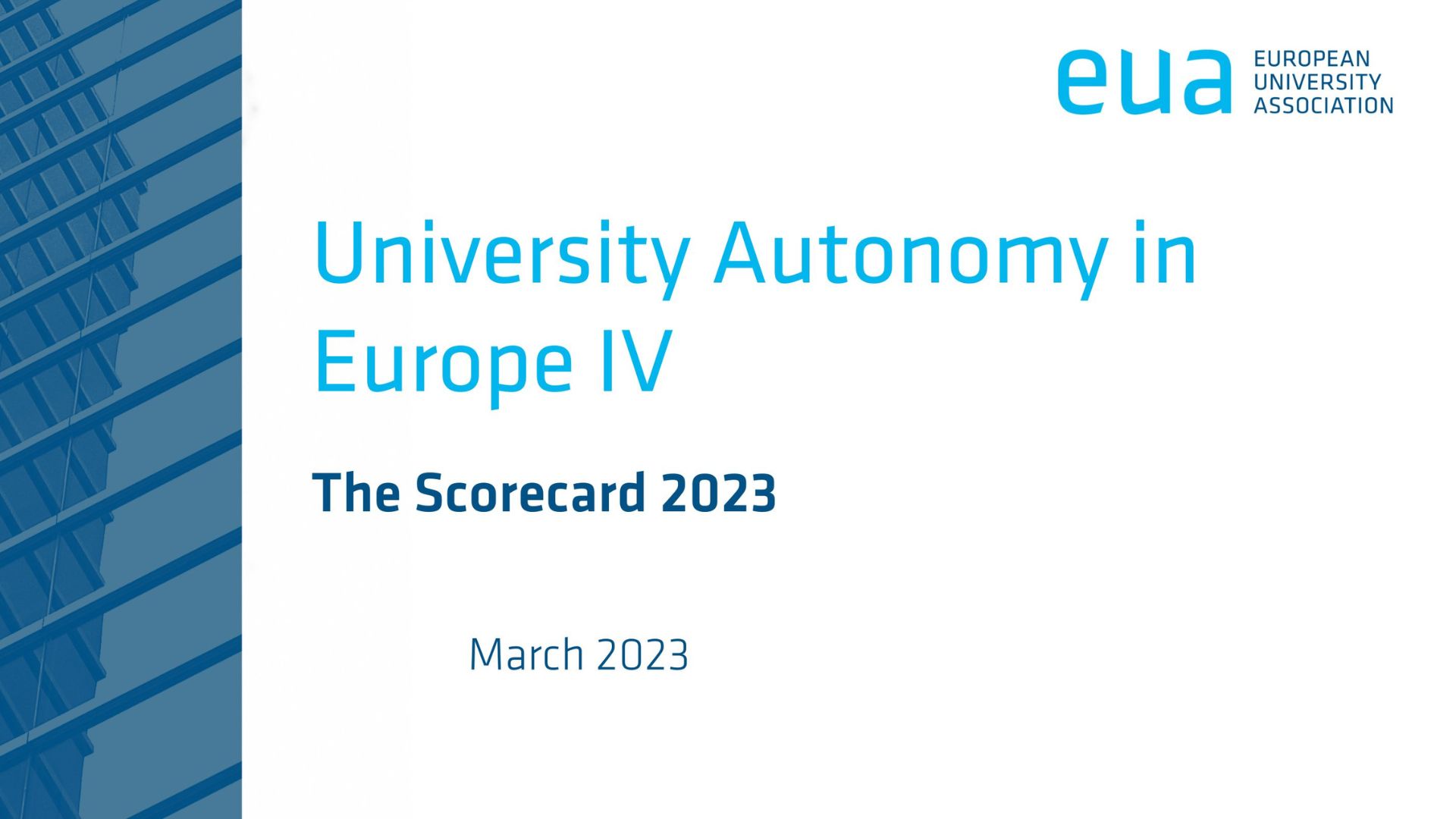University Autonomy is a Valuable Asset
At Una Europa’s first public discussion in Switzerland, the leaders of the universities of Zurich, Leiden and Edinburgh were all in agreement: the academic, organizational and financial independence of universities must be fiercely defended against attempts to exert external influence.
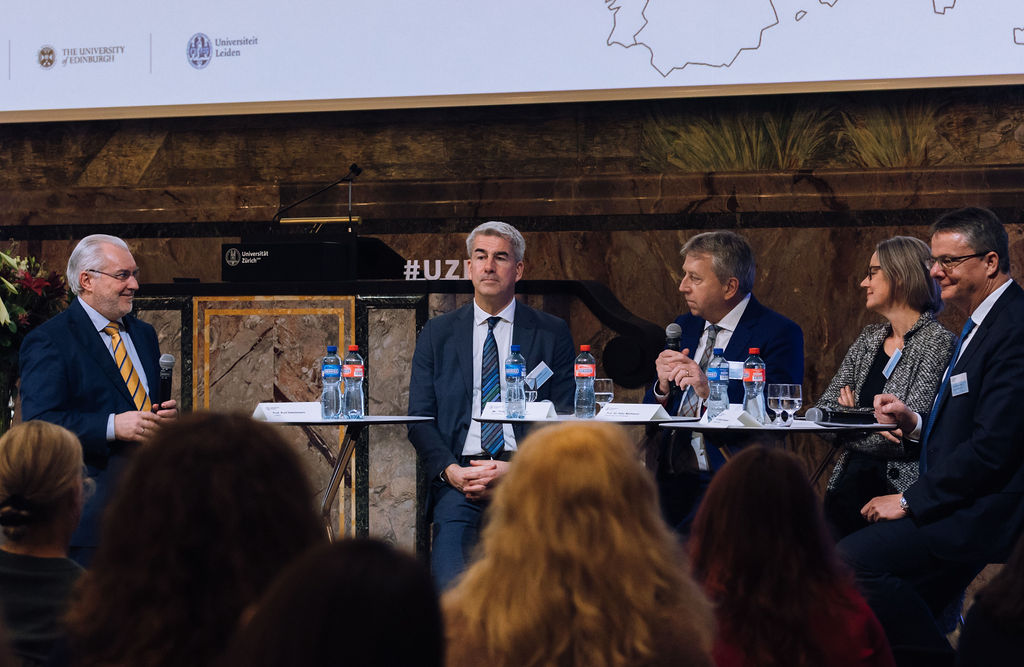
Autonomy, accountability and leadership – these three terms formed a common thread at Una Europa’s recent “Una.Lecture”, held in Zurich for the first time. The University of Zurich, which joined the network of 11 leading European research universities nearly two years ago, hopes that the lecture event will encourage dialogue between the university community and the general public concerning university autonomy.
“In a time when it’s increasingly expected that universities remain competitive and achieve measurable results, we need to pay special attention to maintaining our autonomy,” said UZH President Michael Schaepman in his opening remarks. According to Schaepman, this autonomy includes aspects such as the freedom to independently make decisions about research strategies or the allocation of resources. “Only then can we create an environment in which research flourishes and students receive a world-class education,” he said.
Scorecard for European universities
But what exactly does freedom and independence for universities entail? These terms can be interpreted differently depending on the university, country or even form of government. That’s why the European University Association (EUA) publishes an Autonomy University Scorecard, which helps universities assess the challenges facing potential partner institutions. The scorecard rates individual universities with 40 indicators concerning their organizational, financial and academic independence as well as their ability to make independent personnel decisions.
Thomas Estermann, Director for Governance, Funding and Public Policy Development at the EUA, presented a few key points of the scoring system. He gave Swiss universities high marks for their well-diversified academic independence, solid financial basis and authority over personnel decisions. Organizational independence received somewhat lower marks based on the fact that the Swiss government has a say when it comes to the appointment of external university members – a political peculiarity of Switzerland.
Growing political pressure
In the discussion that followed – skillfully moderated by Kurt Deketelaere, Secretary General of the League of European Research Universities (LERU) – it became apparent that not only do Swiss universities have to navigate a complex political system but that this holds true for the University of Edinburgh as well. President and Vice Chancellor Sir Peter Mathieson put it this way: “We have to serve two very unequal masters – the Scottish government and the British government in Westminster, and they disagree on just about everything.” Mathieson said that in his role as president he often has to mediate between the two and perform difficult feats of persuasion; this lack of alignment can sometimes be used to create opportunities, however.
University of Leiden President Hester Bijl also reported that Dutch universities have had their fair share of experience navigating political institutions. “Since our academic independence received rather low ratings due to our relatively small international academic program, our universities are currently devoting lots of energy to becoming more open for foreign researchers and students,” said Bijl, who added that these efforts are threatened by the new conservative government. A new law that would have severely limited the independence of the universities was also successfully prevented.
Strong leadership required
All participants agreed that a university’s autonomy is a precious asset that needs to be protected from attempts at outside political or financial interference. During the group discussion, it was generally agreed that it is best to reject third-party financing that grants others a say in research issues, and that academic and institutional freedom must be consistently defended. “Freedom is an obligation. Anyone who claims freedom for themselves also needs to prove that they know how to use it responsibly,” said Schaepman.
All of the panel participants emphasized that only clear and firm leadership can preserve university autonomy in the face of growing financial, political and societal pressure. Universities need to be headed by assertive leaders who can skillfully maneuver in both the political and economic spheres, they said, while at the same time having a keen understanding of the freedom-loving world of academia. “It’s actually an impossible job,” said one of the presidents. An impossible job, perhaps, but apparently also one that we might not want to hand over to a manager in the private sector but rather keep within the ranks of the university community.
Melanie Nyfeler, UZH Communication
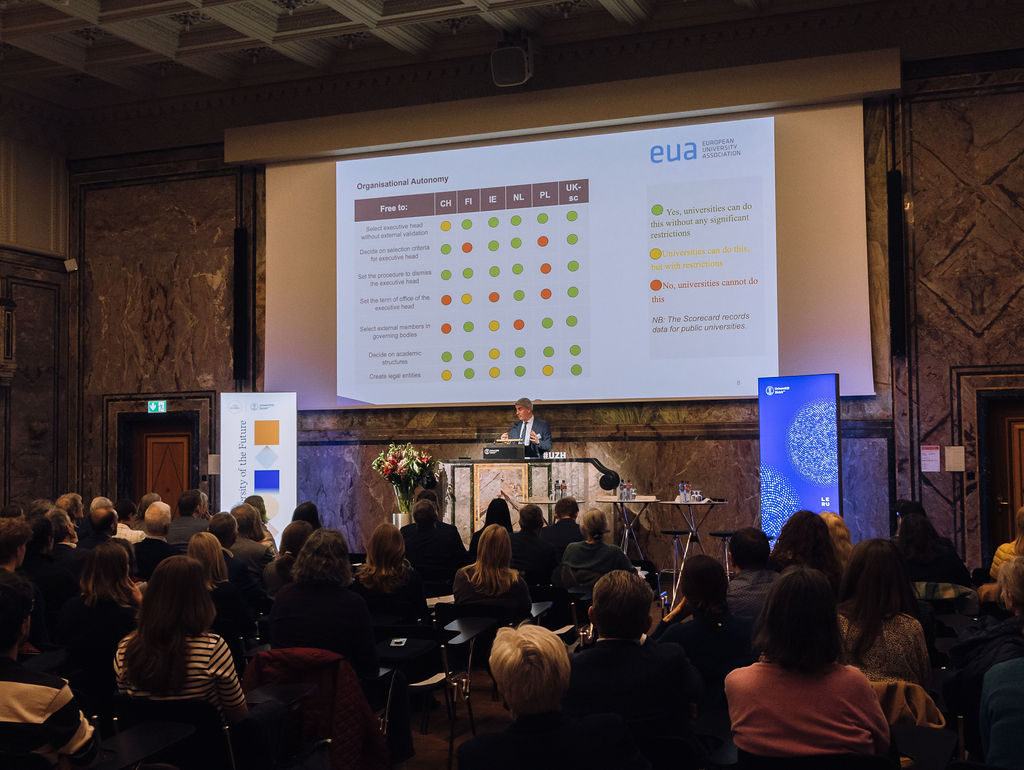
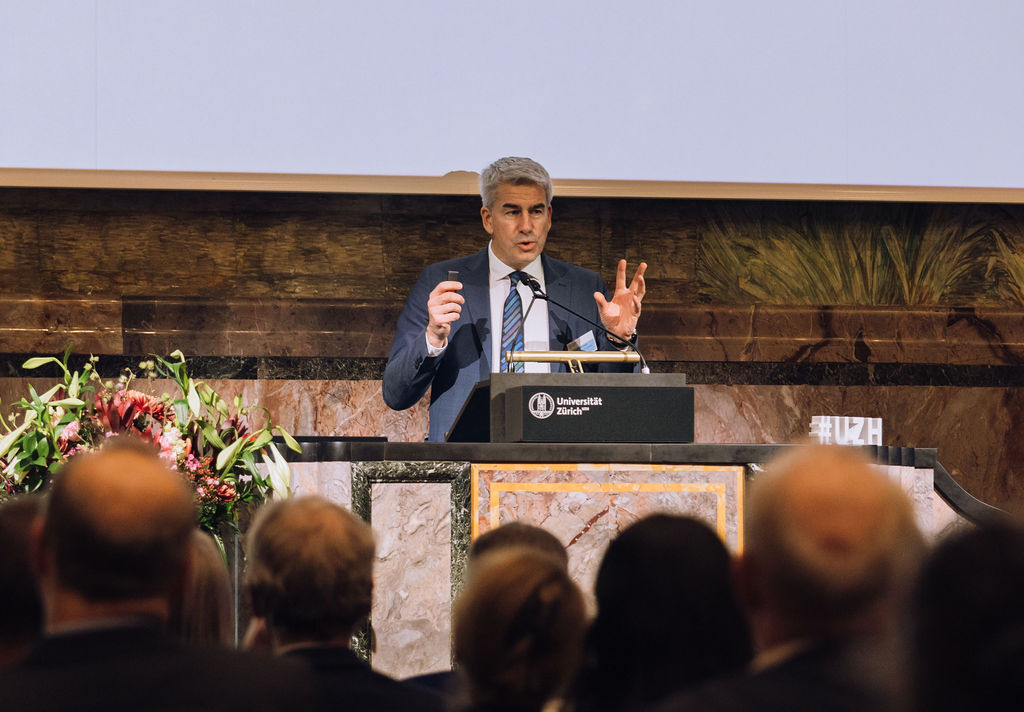
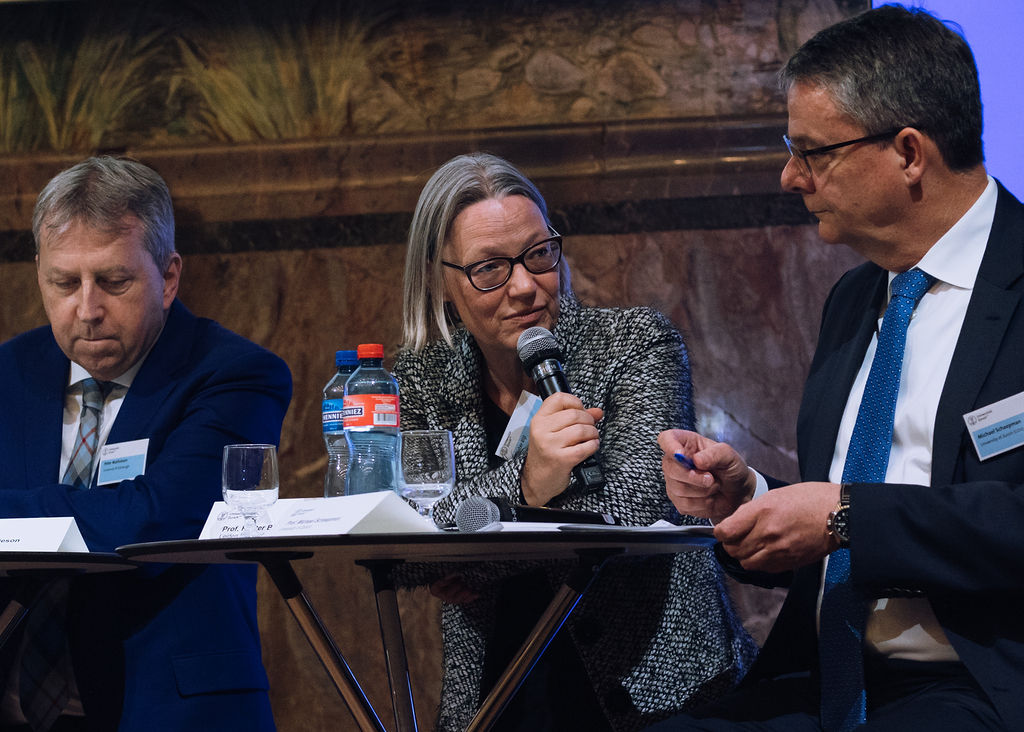


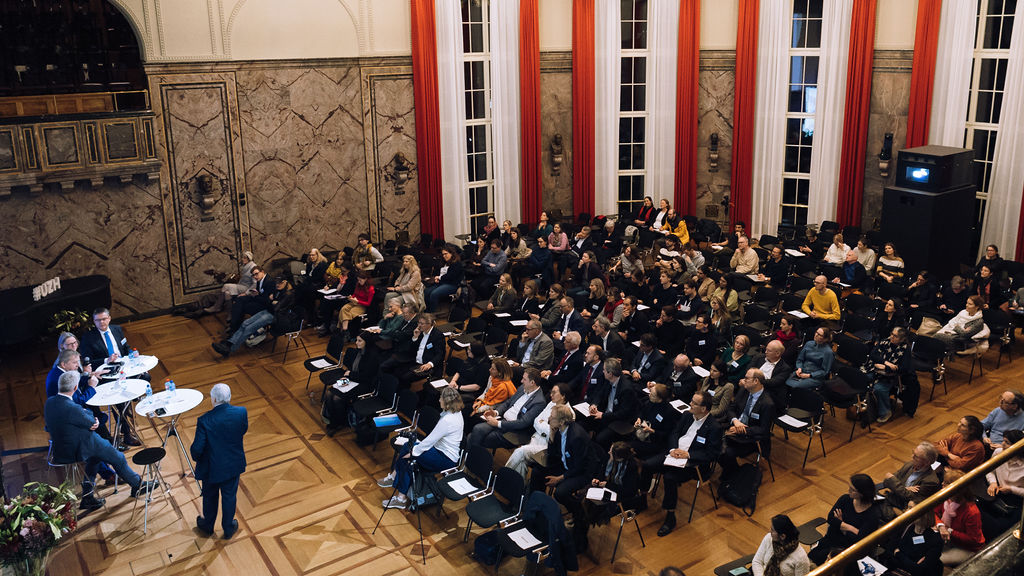
.jpg)
